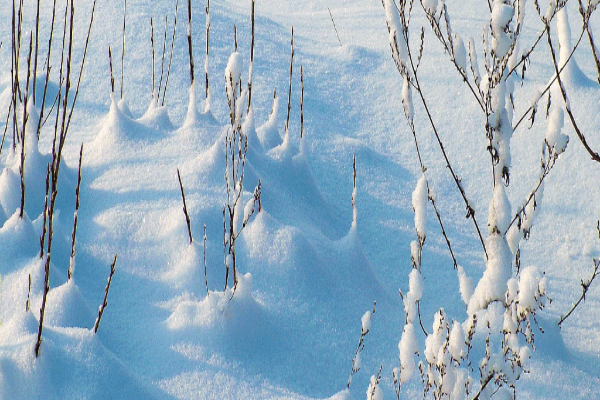
Discover how to manage winter insects in your winter garden with Mosquito Joe's expert tips:
|
Even in parts of the country buried under snow, our gardens remain busy places in winter. Flower bulbs root in, and shrubs replenish their energies in preparation for glorious spring blooms. Wildlife forages for food, and overwintering insects employ various survival strategies. While some winter pests enter a state akin to hibernation, others are actively eating and growing, ready to produce huge broods when spring arrives. Let’s take a look at the most common overwintering pests and see what they may be up to in your garden.
Most Common Overwintering Pests
The most common overwintering pests vary by region, of course. And they behave a bit differently in snowy Wisconsin than in sunny Florida. But there are many that can be found throughout the country. We’ll explore the ten most common overwintering insects. See how many of your neighbors you can spot!
Aphids
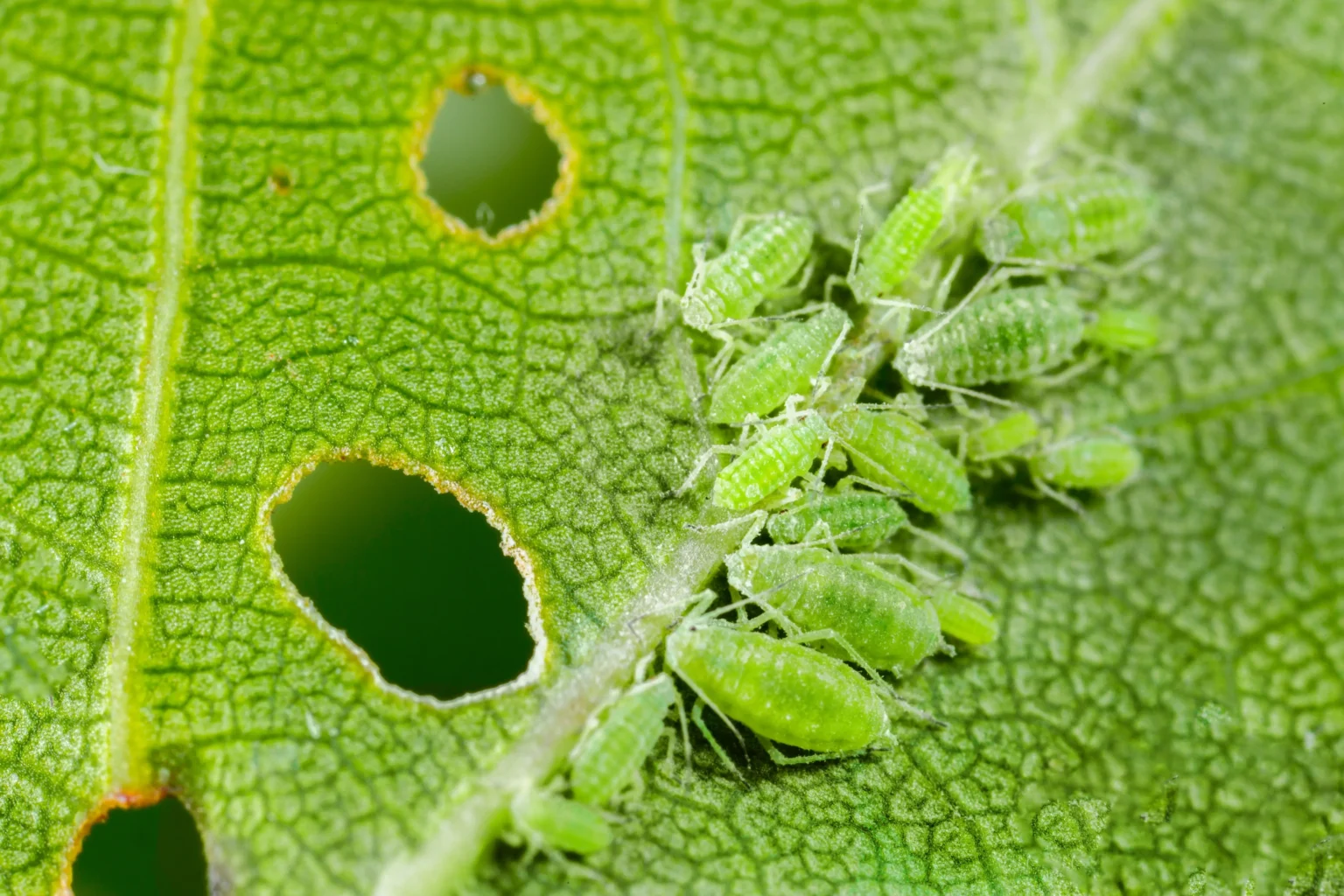
Aphids are tiny, sap-sucking insects that feast on the moisture in our plants. They produce a sugary liquid waste called “honeydew” that is irresistible to ants who actually “farm” aphids! (Our entomologists really dig this kind of stuff). If your garden plants are plagued by aphids, you likely wonder what temps kill aphids. Or even if aphids can survive freezing. Adult aphids cannot survive when their bodily fluids freeze. This occurs between 5 to 23 degrees Fahrenheit. But they lay eggs to ensure the next generation of garden-suckers will be born in spring.
Squash Bugs
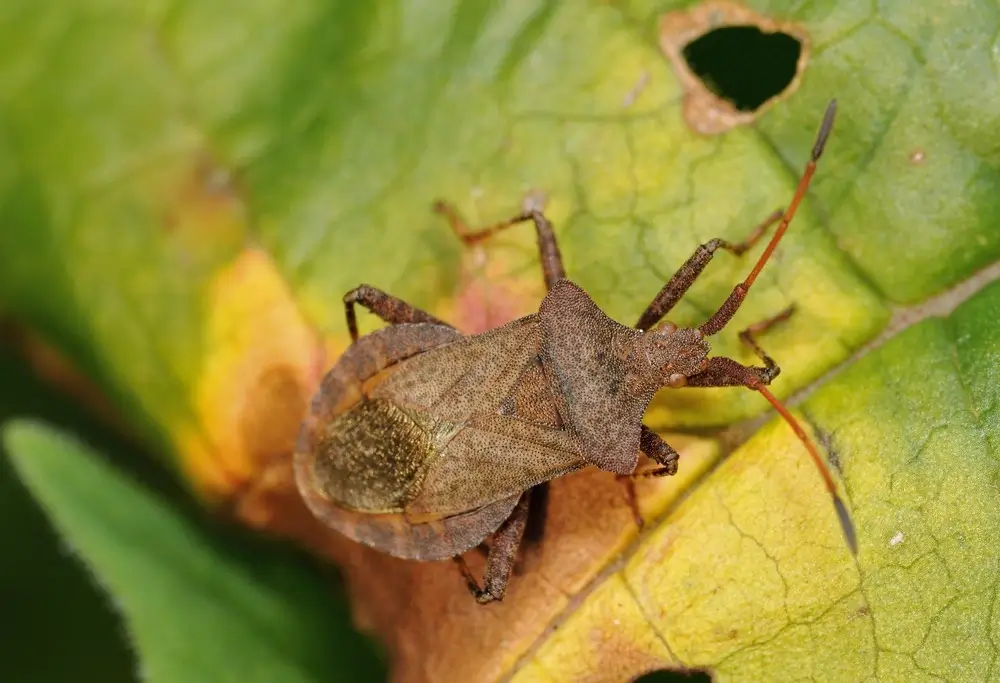
Squash bugs are the bane of squash, pumpkin, and cucumber farmers. The ⅝-inch long dark gray or brown bugs can sicken and even kill young plants. As adults, these overwintering insects hide under plant debris and under rocks or logs in the garden. Just one generation of squash bugs develops each year.
Whiteflies
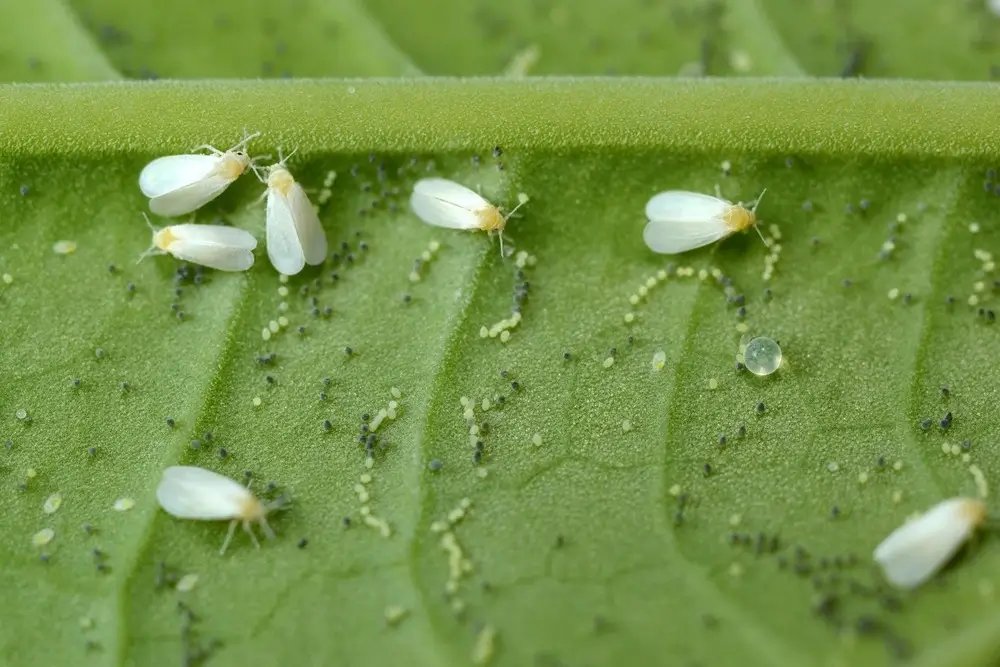
Closely related to aphids, whiteflies are tiny, winged insects that suck the juices from the underside of a plant’s leaves. Despised by gardeners everywhere, these moth-like pests can transmit disease between plants and even kill grown plants. Whiteflies are killed by the winter temps that fall below freezing. They remain year-round pests in mild climates and overwinter indoors or in greenhouses in colder locations.
Colorado Potato Beetles
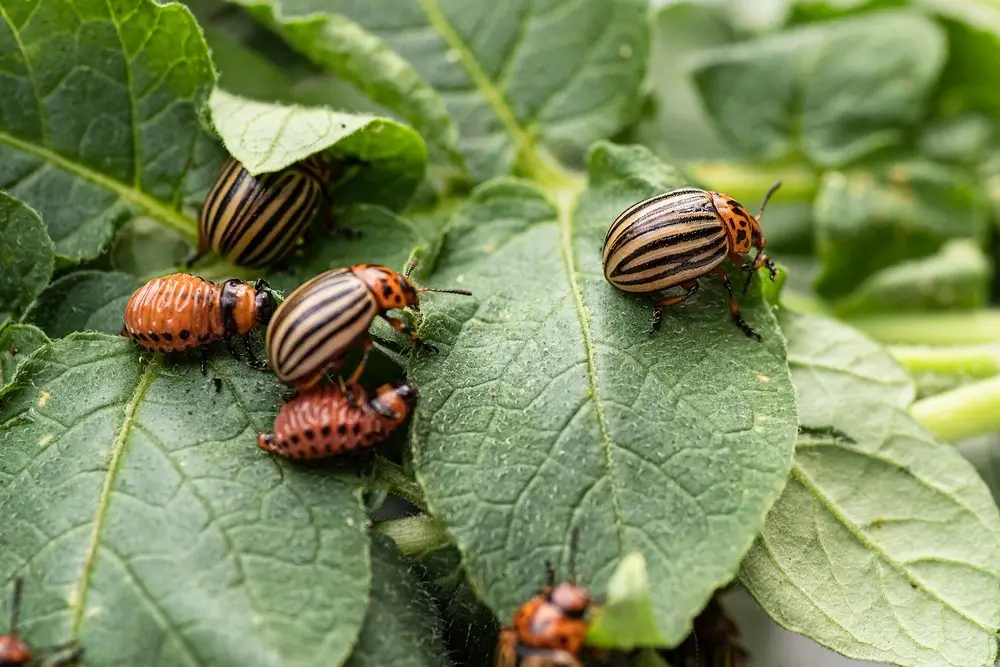
Despite their name, orange and black-striped Colorado Potato Beetles are overwintering pests throughout most of the U.S. They burrow 5 to 10 inches deep underground to hibernate for months during freezing weather. They awake hungry and ready to reproduce in the spring garden or potato field.
Mealybugs
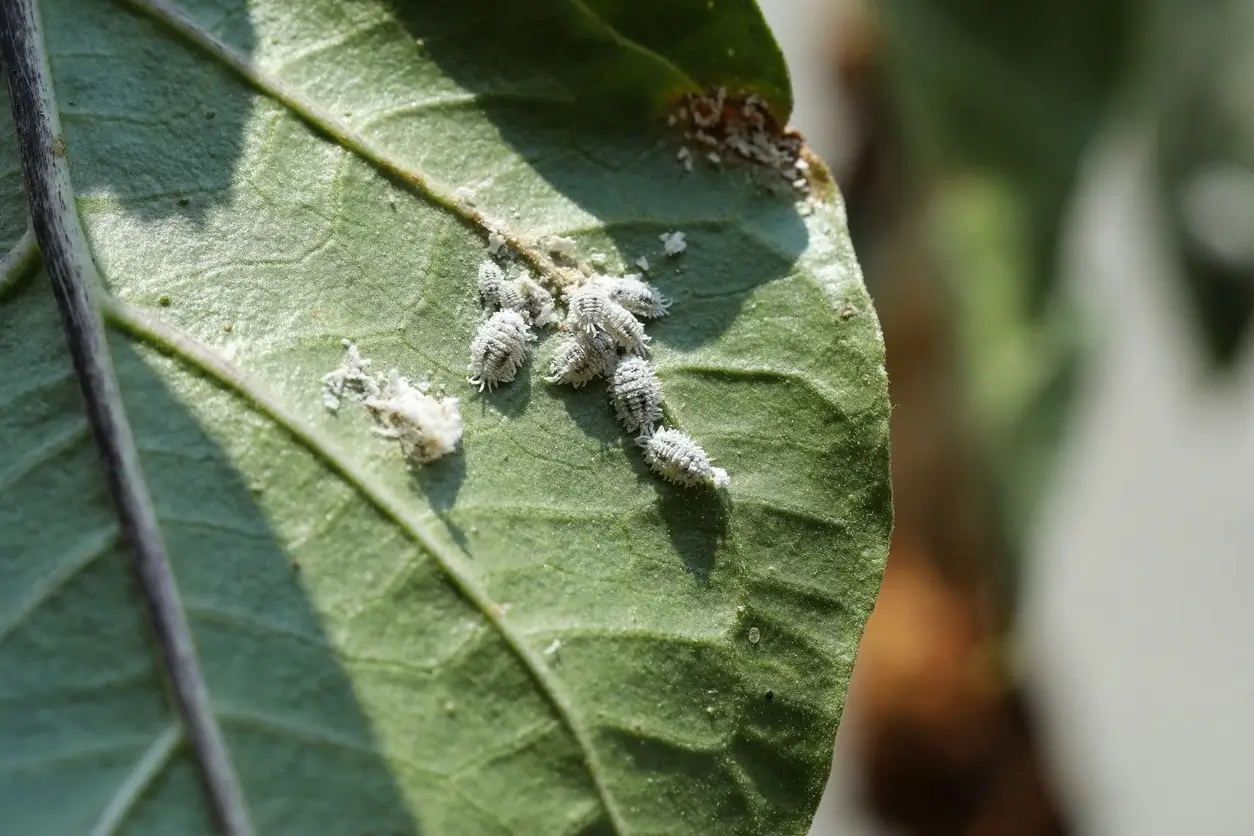
Mealybugs are tiny oval insects covered in a wax-like substance that looks like white powder. They infest houseplants and citrus trees, with a marked preference for orchids, palms, and succulents. Mealybugs suck the juices from plants, producing honeydew that attracts ants. The nasty little winter pests overwinter as eggs or nymphs in tiny crevices like tree bark.
Scale Insects
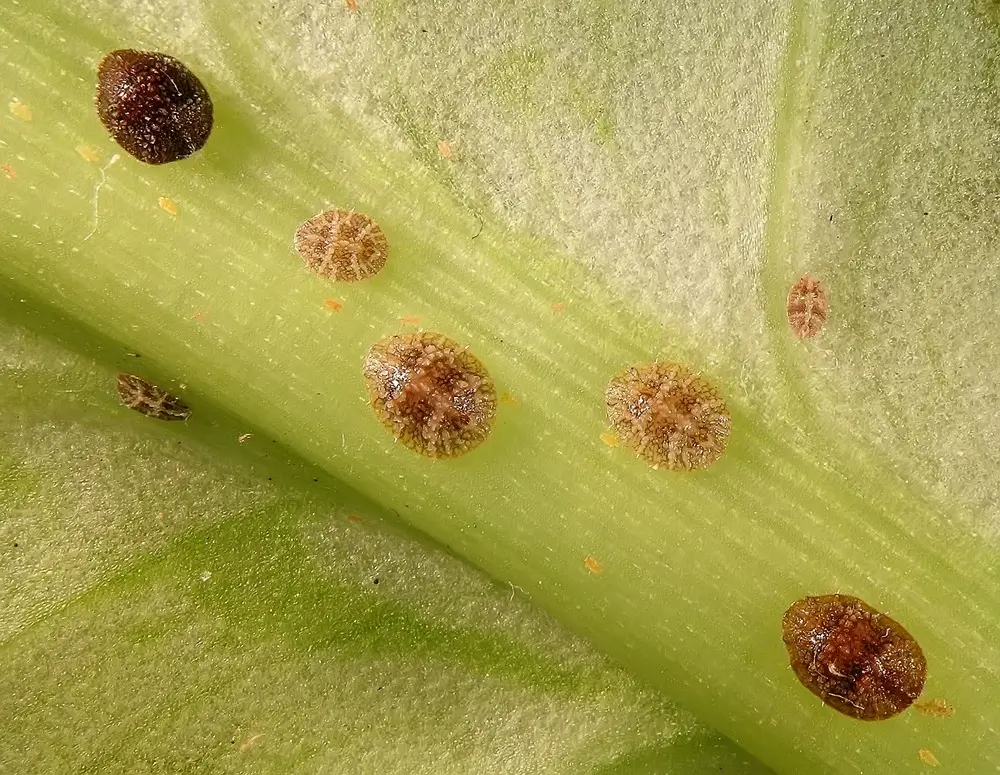
There are roughly 8,000 species of scale insects, some with armored bodies and others that are soft. All suck the moisture and nutrients from plant leaves and stems. Hard-bodied scales overwinter as eggs, while soft-body scales cover themselves with protective waxy secretions. Typically, immature, fertilized female soft-body scales are dormant in winter, ready to lay their eggs in spring.
Thrips
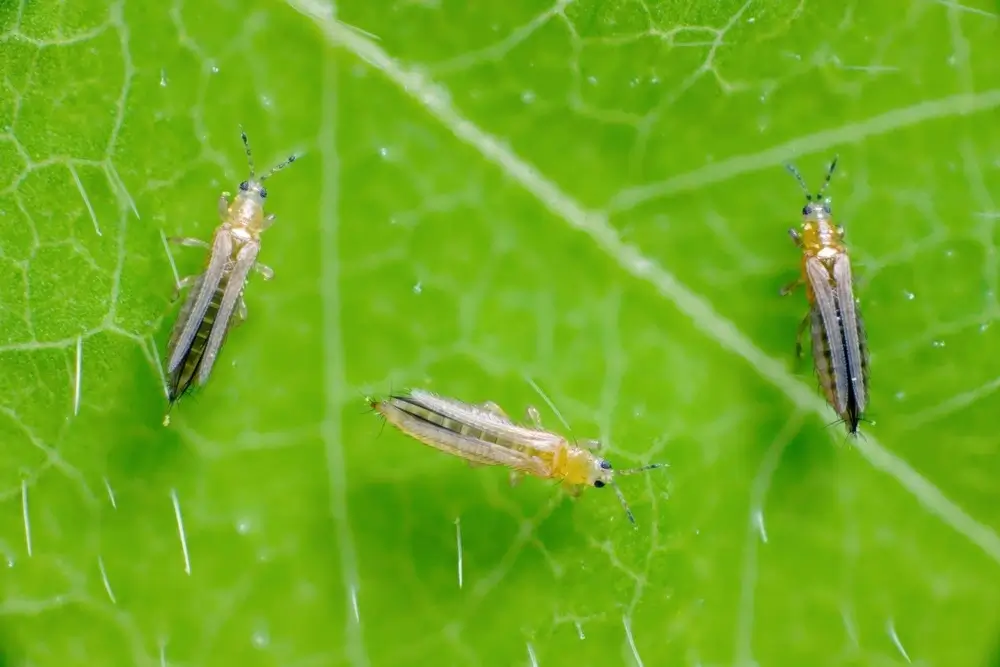
These tiny, slender insects feast on the sap from flower buds, causing strangely deformed blooms. These overwintering insects hide dormant in leaf litter, bark mulch, and decaying plant debris. They wake up in early spring, ready to eat and lay eggs.
Spotted Lanternflies
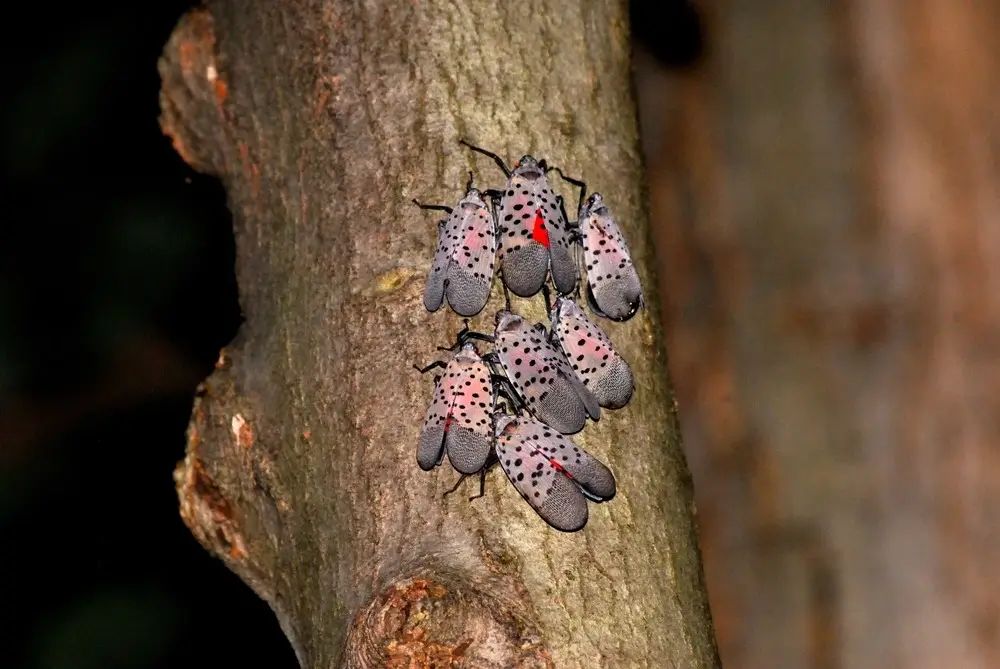
These striking, damaging moth-like pests are highly invasive and do hundreds of millions of dollars in damage to our crops annually. Spotted scarlet flight wings are covered by translucent tawny wings at rest, looking pink. Spotted lanternflies lay egg masses that survive winter protected by a waxy secretion.
Cabbage Moths
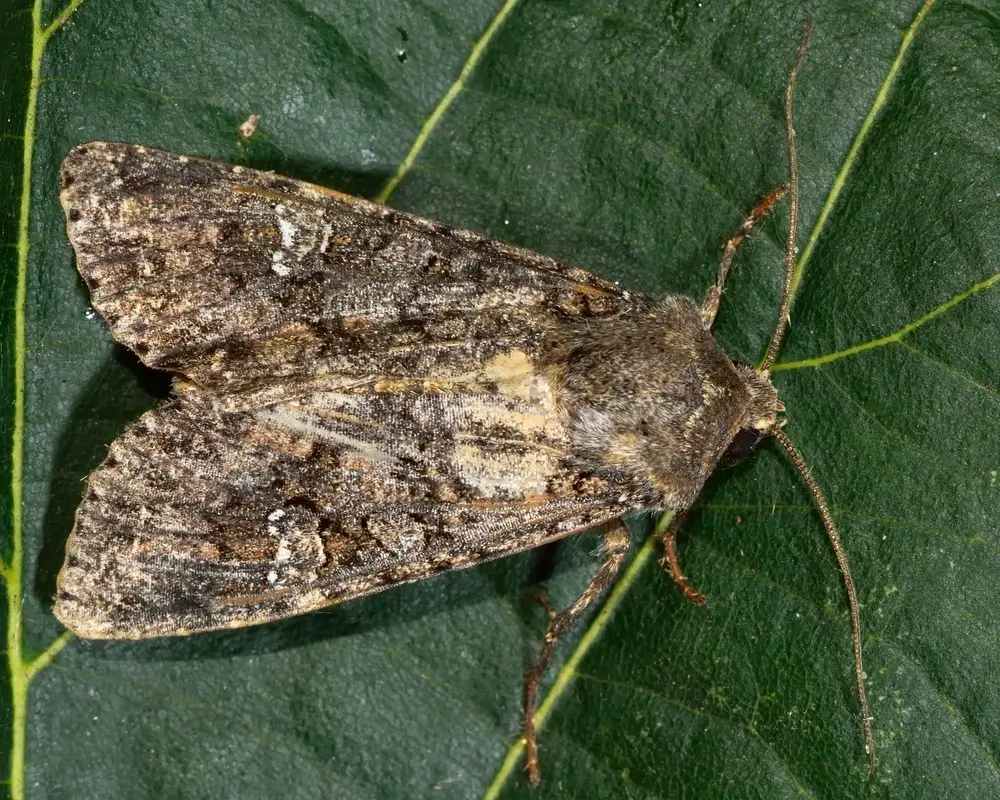
These 1.5-inch-long moths do severe crop damage to a wide range of diverse fruit and vegetable crops yearly. The pupae, known as cabbage loopers, survive winter by staying in the soil or in cocoons attached to host plants. These damaging overwintering pests also migrate as adults to avoid the cold.
Stink Bugs
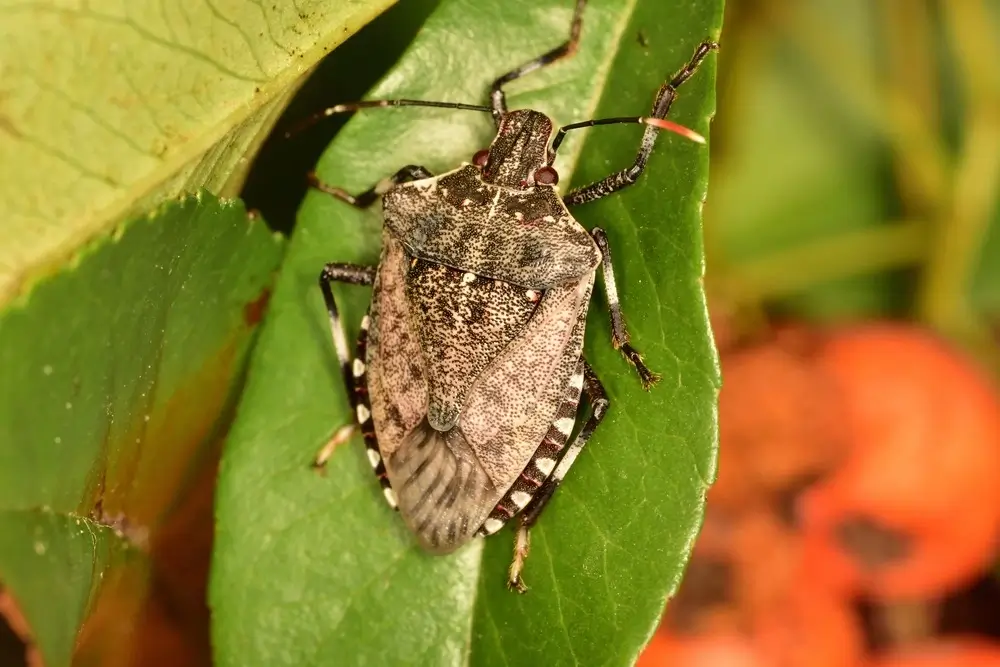
This brown-speckled, shield-shaped insect is invasive and found throughout the country. Stink bugs feed on fruits and vegetables, emitting a burnt-tire stench when they feel threatened. These foul-smelling bugs overwinter in our homes, finding small chinks in door frames and siding.
What Are the Signs of an Overwintering Pest Infestation?
With so many overwintering insects, winter pest control is crucial to an effective year-round strategy. Unfortunately, most people won’t notice any signs of overwintering pests unless the bugs move into the house! Dirty yellow or brown stains along your baseboards or furniture are a sign of stink bugs. If your houseplants develop a sticky residue on their leaves, look at the underside for whiteflies. Often, the clearest sign that you have pests overwintering on your property is robust populations of those insects come spring.
Things You Need to Do to Protect Beneficial Winter Insects
Beneficial insects are invaluable. They are made up of pollinating species and those that prey on pests. About 75% of flowering plants and nearly 40% of crops around the world depend on pollinators like bees, wasps, moths, butterflies, and ladybugs. For many reasons, our pollinators are in severe decline, and they need the support of home gardeners. Unfortunately, most of the care that supports beneficial insects in winter, like leaving leaf litter and weeds in place, also helps overwintering pests. One step you can take to control the pests and protect the beneficials is to hire professional pest control like Mosquito Joe®. Our service professionals take extraordinary care to leave pollinators and other beneficial insects unharmed while targeting garden pests.
Keep Your Winter Garden Pest-Free Without Harming Beneficial Winter Insects
Eliminating overwintering insects interrupts the pests’ life cycles, significantly reducing the springtime population. Mosquito Joe performs comprehensive pest control services, including winter treatments, each one conducted with sensitivity for beneficial insects.
Trust your property to Mosquito Joe. The Neighborly Done Right Promise® and the Mosquito Joe Guarantee backs all our work because the job isn’t done until it’s done right.
Request a free quote today, or call your local pest control experts. We’ll get those overwintering insects to bug off!
